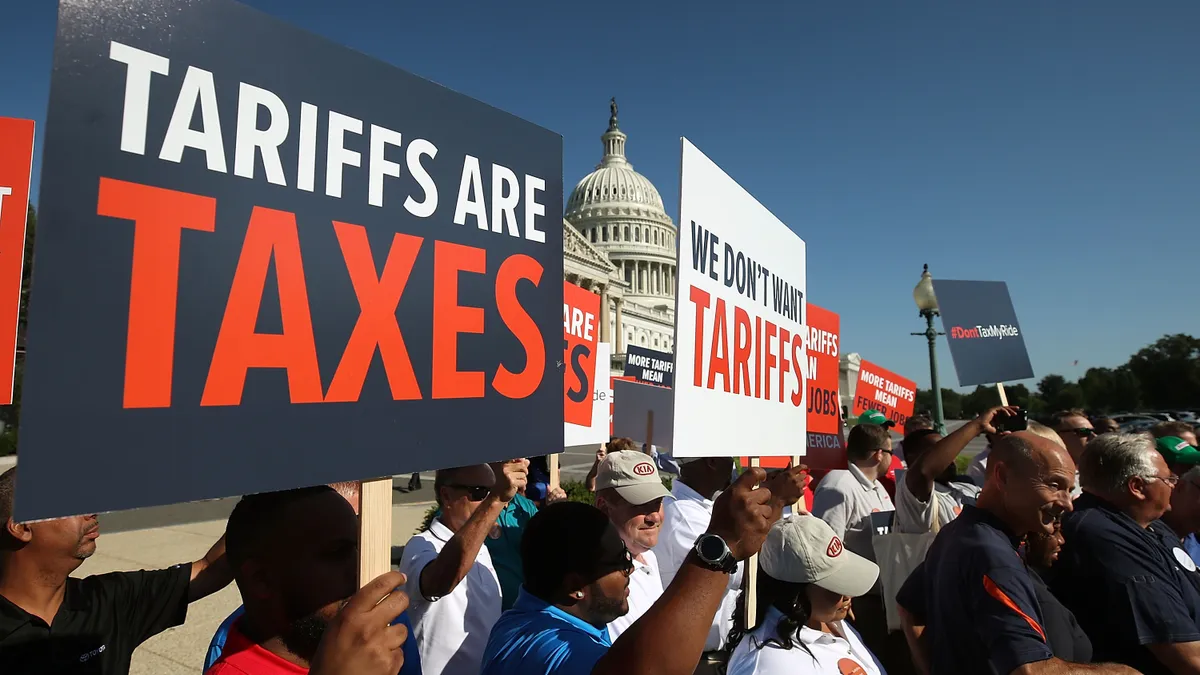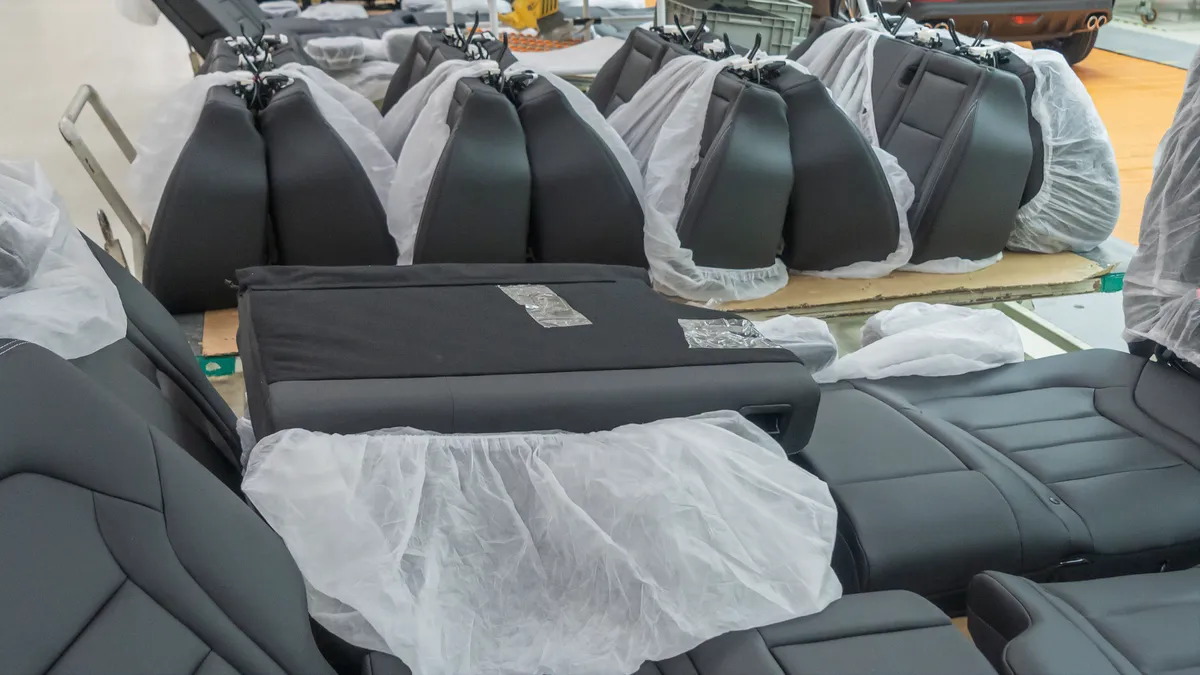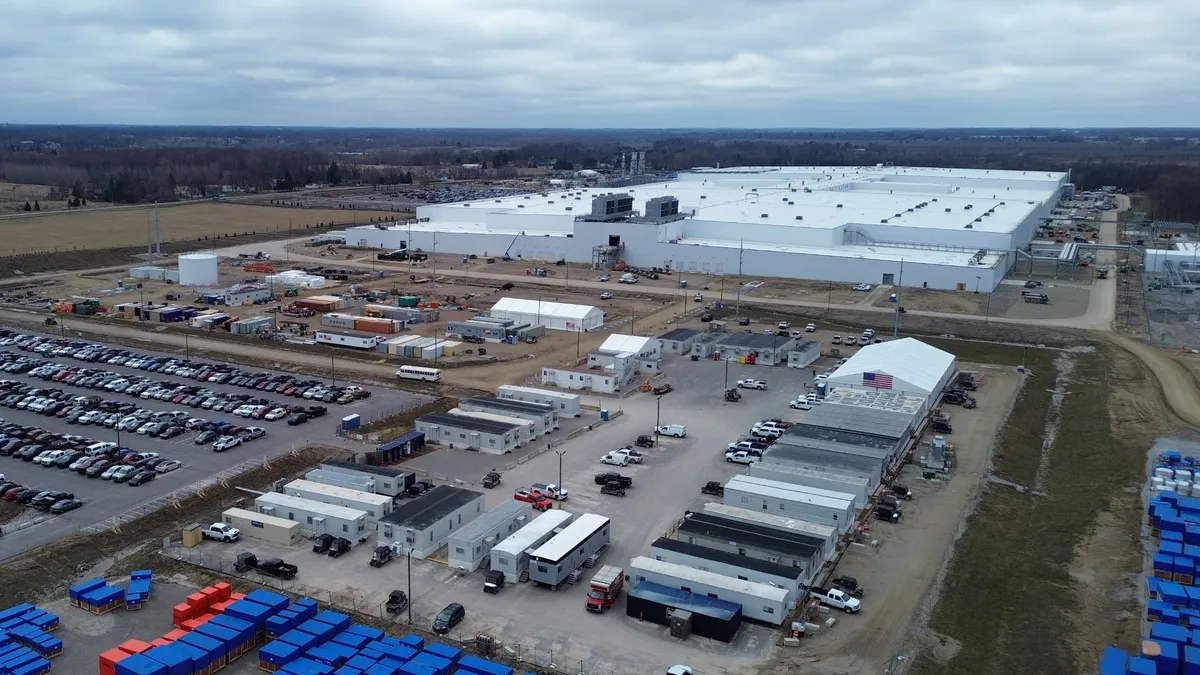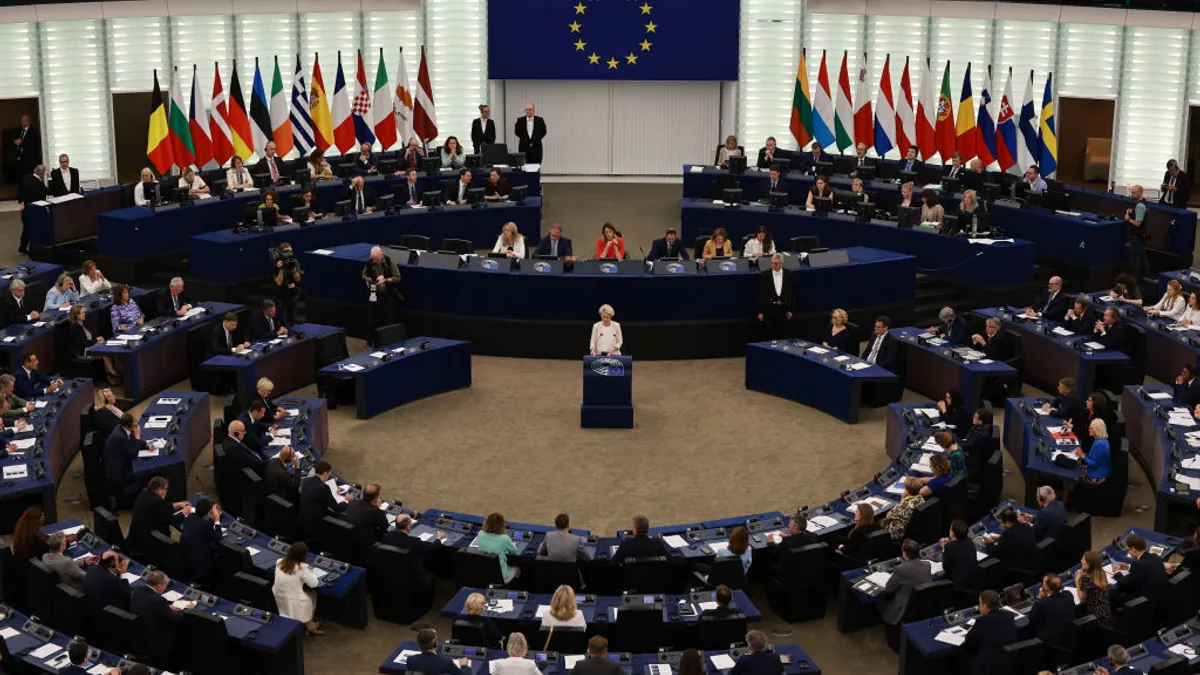When the Biden Administration revealed plans for wide-sweeping tariff increases on goods from China earlier this week, the White House categorized it as another step to accelerate technology manufacturing in the U.S. while combating “China’s unfair trade practices.”
The new tariffs, which include rate increases on electric vehicles, semiconductors, solar cells and some medical products, will coincide with the maintenance of previous Section 310 tariffs, according to the Office of the U.S. Trade Representative.
Although interested parties will have an opportunity to submit comments to the USTR on the new tariffs next week, some trade associations and analysts have already released statements, many of which oppose the expanded tariffs.
Below are some excepts on what industry leaders are saying about the tariffs.
Alliance for Automotive Innovation President and CEO John Bozzella
“Automakers embrace fair competition. We’re not shrinking from it, but China’s EV overcapacity and subsidy issue is real. The competitiveness of the auto industry in the U.S. will be harmed if heavily subsidized Chinese EVs can be sold at below-market prices to U.S. consumers.
“It’s appropriate for the White House to be looking at tools to prevent the U.S. from becoming a dumping ground for subsidized Chinese EVs. We can’t let China’s EV overcapacity problem turn into a U.S. auto industry problem.”
National Association of Manufacturers President and CEO Jay Timmons
“Manufacturers are concerned about the potential impact this broad swath of tariffs could have on our ability to produce the essential products needed to drive our economy forward, especially if critical inputs become less available and more costly.
“That is why manufacturers urge the administration to negotiate new trade agreements with allies and partners around the world and create a new, comprehensive and transparent 301 exclusion process to ensure that manufacturing in America is not being disadvantaged by our own government.
“Politicians and policymakers on both sides of the aisle need to understand that we can’t instantly reshape supply chains that took decades to build.”
American Apparel and Footwear Association President and CEO Steve Lamar
"The decision to extend Section 301 tariffs on a wide range of apparel, footwear, accessories, and textiles — while not unexpected — is a real blow to American consumers and manufacturers alike.
"The Biden Administration has had two years to get it right. Unfortunately, they doubled down on a flawed tariff policy, despite the Biden Administration's own acknowledgment that this policy has failed in its goals.”
Retail Industry Leaders Association Vice President of International Trade Blake Harden
“We are deeply disappointed by the Biden Administration’s decision to double down on the use of harmful, broad-based tariffs – which is an affront to American businesses and consumers.
“Leading retailers have worked hard to bolster their supply chains to be more agile and resilient in the face of uncertain economic conditions, and shield customers from feeling the impact of these high tariffs; but after carrying the weight of Section 301 tariffs for over five years, one thing is abundantly clear: tariffs are taxes ultimately paid by American businesses and consumers – not China.”
National Retail Federation EVP of Government Relations David French
“We are extremely disappointed that the United States Trade Representative and the Biden administration have chosen to double down on a failed and inflationary strategy by sustaining and expanding the Section 301 China tariffs.
“As consumers continue to battle inflation, the last thing the administration should be doing is placing additional taxes on imported products that will be paid by U.S. importers and eventually U.S. consumers.
“We need a new strategy that will address the core issues and provide actual incentives for U.S. companies to shift their supply chains from China.”
American Trucking Associations VP of Energy and Environmental Affairs Jacqueline Gelb
“The truck industry is already experiencing record high vehicle costs for zero-emission trucks to accommodate the Administration’s mad-dash to zero. Levying tariffs on batteries, where currently there is no commercially available U.S. based battery-cell manufacturer, will result in higher vehicle purchase prices and put more inflationary pressure on our industry and supply chain.”
Motor & Equipment Manufacturers Association EVP Ann Wilson
“We opposed generally the 301 tariffs to begin with. These are being absorbed by manufacturers across the country. And by continuing the vast majority of the 301 tariffs at the current rate, this continues to be a cost of manufacturing in the United States. Having said that, we want to work with all parties, Congress, the administration to address the serious issues about our economic relationship with China. And we want to make sure that we continue to keep that dialogue open back and forth.
“The industry is in the process of reshoring lots of components. Some are going to Mexico, some are going to other countries, some are coming to this country. One of the things that has been a grave concern to us … is the transshipment of goods from China, trying to evade the tariffs … we applaud the administration for recognizing this as a as an issue and allocating additional revenue to Customs and Border Protection to do this, to really clamp down on this.”
Agriculture Transportation Coalition Executive Director Peter Friedmann
“China is the our largest overseas market for US agriculture. The concern of the Agriculture Transportation Coalition is less about this week’s announced additional US tariffs on imports from China, than on possible retaliation by China vs US agriculture and forest products exports. Such retaliation was painfully experienced by US farmers and producers when we imposed the Section 301 tariffs on China’s exports, 5 years ago. So far we are not seeing evidence of such retaliation, but it is always a concern for US agriculture exports.”
Consumer Brands Association VP of Campaigns and Special Projects Tom Madrecki
“It's consumers who will continue to pay the price for trade policies that add to cost and inflationary pressures. That’s why our industry has remained opposed to Section 301 and 232 tariffs. Removing tariffs on certain ingredients and inputs and outlining a more comprehensive exclusions process would benefit consumers and should have been part of USTR’s report. If the Biden administration wants to address cost pressures on consumers, tariffs are not the answer."
Third Bridge Semiconductor Analyst Lucas Keh
“The tariff hikes on technology between U.S./China are especially highlighted on the EV end, as consumers should now expect a jump from 27% to 100% on imported Chinese EVs. Our experts see the impact trickle down to the semiconductor side with a broadening of the categorization of technology being restricted between U.S./China.
“The biggest questions that are to be answered are: If the U.S. fab capacity and supply chain outside of China can ramp up adequately in 2024-early 2025 in order to meet the industry demand that will have to be made up from lost business in China, inflationary impact on consumers and how this could stagnate the growth of the semiconductor industry or parts of the EV industry as a whole.”
Editor’s note: Ann Wilson’s statement was provided in an interview with Supply Chain Dive and has been edited for clarity and brevity.
This story was first published in our Procurement Weekly newsletter. Sign up here.





















